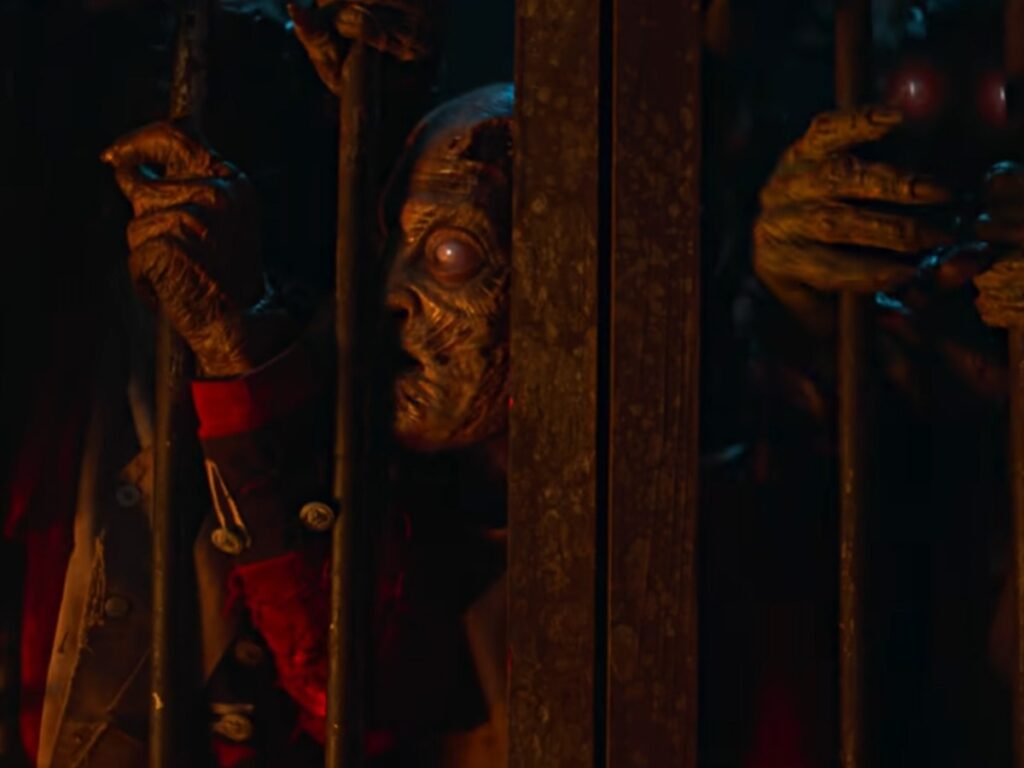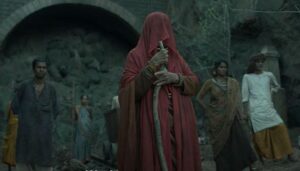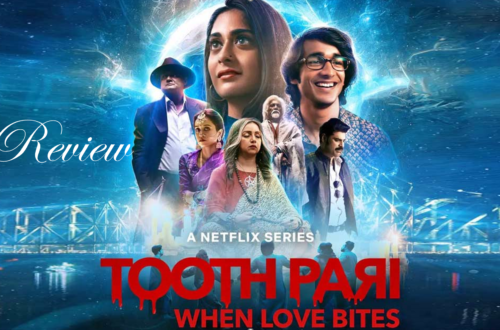Betaal: A Peek Into a Zombieland Where Logic Dies Several Deaths
I would be lying if I said that Bard of Blood by Red Chillies Entertainment wasn’t good enough. But still, it had some flaws that couldn’t be overlooked. Red Chillies Entertainment is back with another series ‘Betaal’ that takes the viewers into a make-belief Zombieland. Mixing history with mythology and fiction, this series takes us back to the time when the British had enslaved the Indians. The story is set in Chattisgarh where a remote village needs to be connected via a highway. In order to build the highway, a tunnel under Mount Betaal needs to be excavated. Unfortunately for the contractor, numerous villagers stand in his way and refuse to let him break the wall of the tunnel owing to uncanny superstitions. A scary old woman explains how a curse will come alive if anything were to happen to the tunnel. Using money, connections and power, the contractor calls for a counter-insurgency squad that is asked to displace the villagers. The moment they blow open the tunnel’s mouth, the curse is unleashed and an army of zombies attacks all the living in that area. This story is about their survival and escape.

Quite sloppy and shoddy, Betaal begins on a spooky note and reminds you of Tumbbad- the essence of red in the premise. However, soon you realise the underdevelopment of plot and cannot help but get stuck at the several flaws that deter the series from being classified as interesting. While the protagonist, Vikram Sirohi, played by Vineet K Singh, is lazy and adorns a deadpan look throughout the series, the supporting cast struggles to make the horror come alive. Being the second in command, Sihori’s voice doesn’t do justice when he commands his subordinates. Most of the time he is unsure of what he wants to do. Yes, his character appears in layers- he is vulnerable, guilty, afraid, selfish yet seeks redemption, but still, his performance fails to pass the muster. He isn’t one of those protagonists one would root for! Aahana Kumra as Ahluwalia is good and Suchitra Pillai Mallik, as Tyagi ma’am- the commanding officer of the Baaz Squad, is average yet unidimensional (a ruthless woman who lives for money and can go to any extent, even sacrifice her morals, to get what she wants). The little girl who becomes the focus of the show, later on, is better than the adults yet underutilized. Jitendra Joshi, who plays the role of the gluttonous contractor, appears as a one-dimensional character with no remorse whatsoever. There are other supporting actors who, strangely enough, deliver one-liners in the hope of making a mark but fail miserably. One of the soldiers says during the battle, “This is for Bhagat Singh.” The dialogue doesn’t even urge the viewers to ponder.

While the story is new and intriguing, the editing is weak. The scenes are either too long or too short; they miss the connecting link. More so, the concept of a dead Colonel Lynedoch who assembles his posse of dead men because he is hungry for more power is a total misfire. With bulging red eyeballs, the zombies look funny. There are definitely some unanticipated jumpscares but when it comes to logic, the show is capable of blowing off one’s gasket. Logic dies a miserable death in these four episodes. The soldiers shoot bullets at the army of the dead, the zombies (knowing that they are ‘too’ hungry) prefer prattling than attacking the living, the escape run is incomprehensible in many ways, especially when the five survivors run in an open field unseen by the zombies who are facing that field, the ineptitude of the soldiers to think on their feet and use the ‘home remedy’ during their stay in the barrack.

As if this is not all, the characters lack a backstory. Ahluwalia’s burn mark demands a backstory that we are denied. Sirohi’s guilt and redemption are shaped around one single scene and nothing more. Akbar’s unpalatable love for his cousin brother, Haq, remains a mystery. Tyagi’s death, in the end, seems futile! And I can go on and on about the loopholes in the story!
The performances also provide no respite. The lack of effort is quite evident. The dialogues are unaffecting. The story gets lost in a web of several themes like the suppression of the underprivileged, the aftereffects of neo-colonialism and the authorities who care the least in terming the rebellious tribals as Naxals and then killing them mercilessly. It is said that too many cooks spoil the broth. Well, this proves to be true for Betaal, for neither does it deliver the horror and thrill that Blumhouse is known for nor does it delve into the Indian folklore deeply like Tumbbad.
Betaal can definitely be skipped unless you, like me, watch series to nitpick flaws and strong points just to write about it on the blog!


